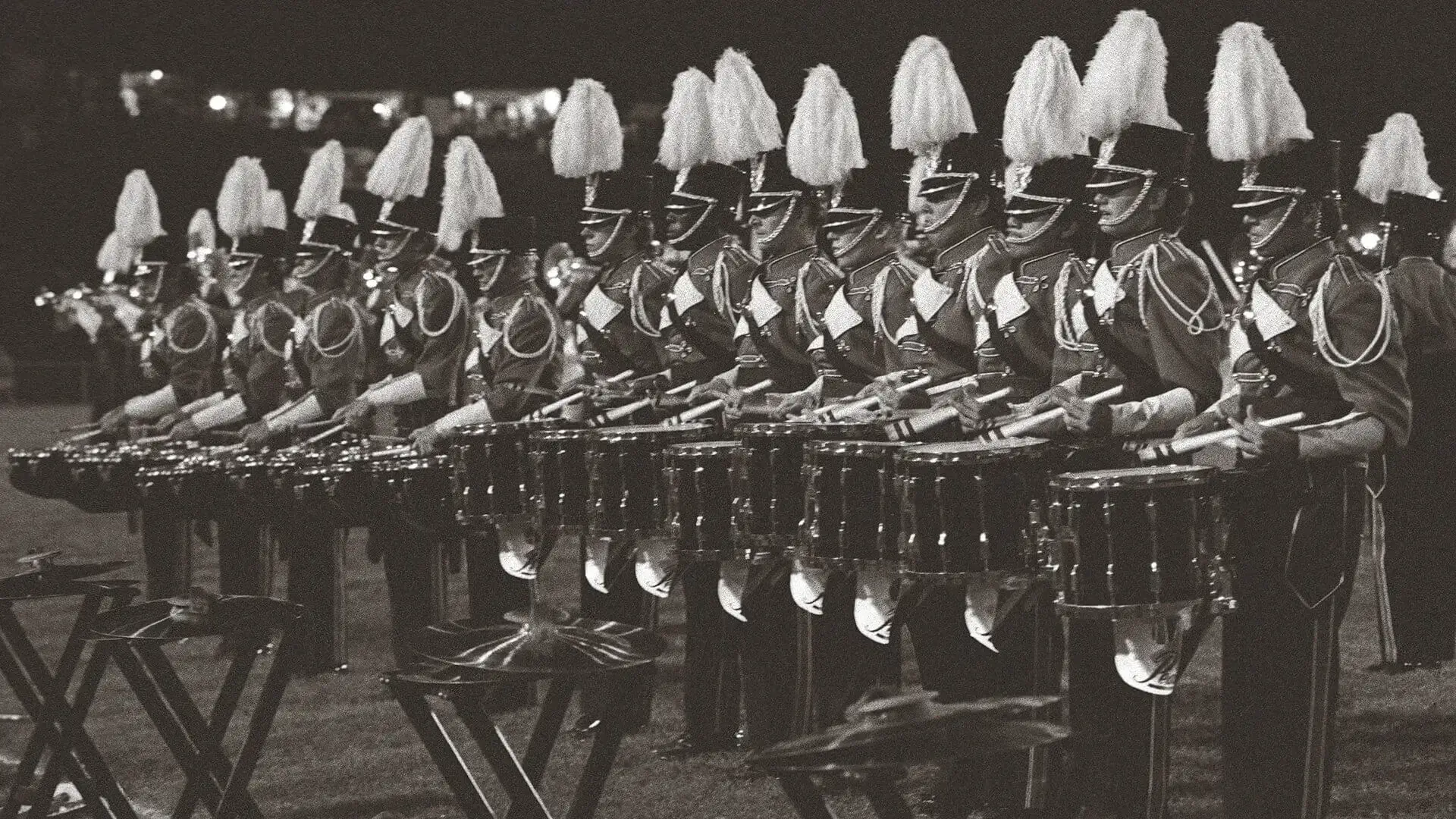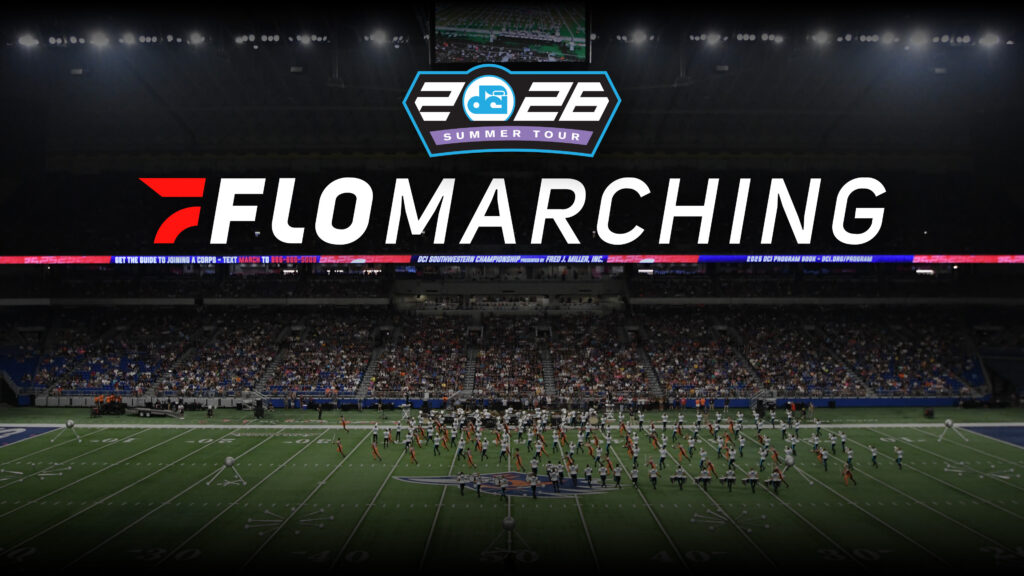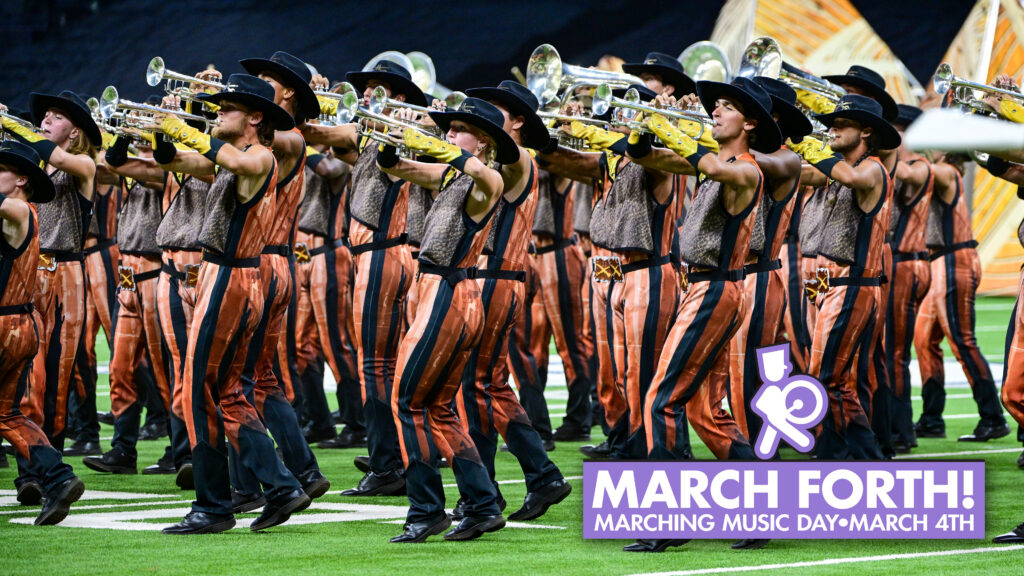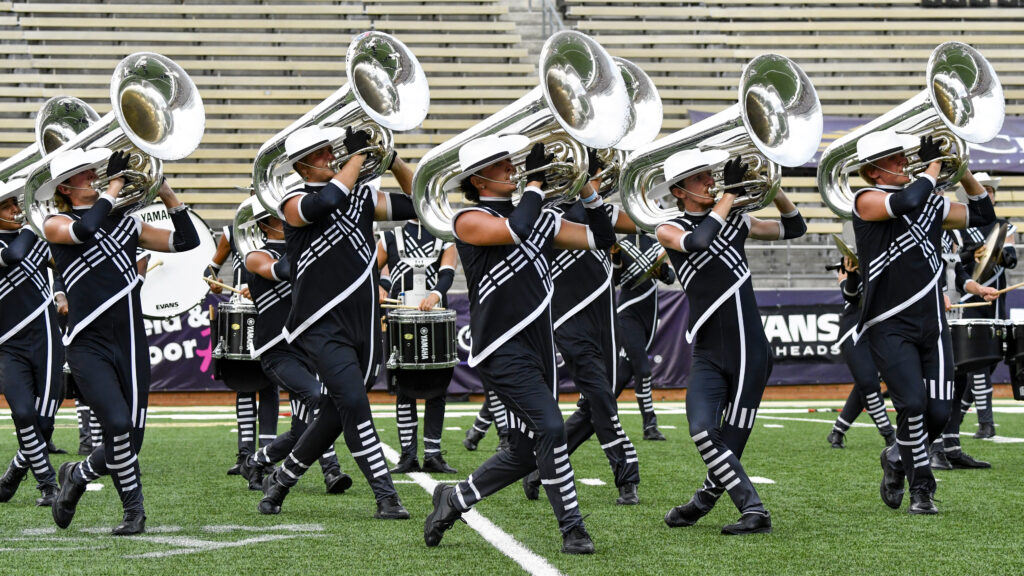The 1989 DCI World Championship was held for the second year in a row in Arrowhead Stadium, part of a massive pro sports complex outside Kansas City, Missouri. Also returning from 1988 was a rework of Santa Clara Vanguard’s “Phantom of the Opera” show, which took top honors (with a record high score) after placing second the prior season. Another high point of the year was Star of Indiana’s sixth-place score of 95.300, a record that still stands today. This year the Freelancers finished in 10th place after not fielding a corps in 1986, taking 19th in 1987, and finishing 15th in 1988. The show featured selections from John Williams’ film scores from the Steven Spielberg movies “E.T. the Extraterrestrial” and “Empire of the Sun.”
By this time John Williams had become one of the most famous composers for film, including contributions to the “Star Wars” and “Indiana Jones” franchises, “Jaws,” “Close Encounters of the Third Kind,” “Superman,” and many more. He also wrote numerous television themes, and it might come as a surprise to many that among his credits is the theme to “Gilligan’s Island.” He has long had a fruitful relationship with Steven Spielberg, composing for all but two of Spielberg’s feature films over four decades.
Both “E.T.” and “Empire of the Sun” explored themes of mortality and innocence. Prior to the 1989 season, Freelancers staff members proclaimed, “Innocence is the ability to believe in something,” adding that “E.T.” explored the pure and trusting innocence of a child, while “Empire of the Sun” looked at the tragedy of innocence lost during the tumultuous years of World War II.
The opening of the show was from the 1982 film, “E.T. the Extra-Terrestrial.” The movies is said to be created out of Spielberg’s own childhood memories, based on the imaginary friend he created as a way of coping with his parents’ divorce. It became the highest-grossing film of all time until the director’s own “Jurassic Park” in 1993.
The Freelancers started the show with a 45-yard wide block formation stretching the entire depth of the field, contracting and rotating as it moved toward the center of the field, leading into “Adventures on Earth,” a joyous fanfare proclamation from “E.T.” that concluded with a company front push. The piece continued with the higher energy fanfare segment of “Adventures on Earth.”
Most of the rest of the show was dedicated to music from the 1987 film, “Empire of the Sun,” based on a novel by J.G. Ballard, who had first come to the world of literature aficionados for his series of science fiction novels. The movie was based on his semi-autobiographical story of a young British boy named Jim who was living in Shanghai during the Japanese occupation of China, a time of terror and repression that ended with the conclusion of World War II. In the film, Jim was captured and taken to a confinement camp next to a captured Chinese airfield. It was the first American film shot in Shanghai since the 1940s.

1989 Freelancers Selections included from “Empire of the Sun” were the bouncy “Jim’s New Life,” the mood-setting “Streets of Shanghai,” and the ballad, “Cadillac of the Skies.” The latter tune referred to the P-51 Mustang aircraft that attacked the Japanese prisoner of war camp, depicted on the football field as soaring through the billowing blue and white cloud flags employed by the color guard.
Ballard had referred to the P-51 as the “Cadillac of air combat,” and during the movie attack, Jim yelled out, “Go P-51, Cadillac of the Skies.” The corps’ staff mentioned that drill forms splitting apart and being joined back together during the conflict segments of the music represented a torn-apart life being made whole again.
A recap of “Adventures on Earth” grew out of the haunting silence of the end of the battle music, seeming to state that despite the cataclysm, the future should be viewed with optimism. Near the end of the movie, “E.T.,” the main human character told his alien friend, “I’ll always believe in you.” It was an appropriate piece of music to end the show, as after a season of inactivity and two years of not being close to being in the Finals, the members of Freelancers believed in the corps enough to stick to the mission of making it back as a top contender.
1989 Overview

Michael Boo was a member of the Cavaliers from 1975-1977. He wrote about the drum corps activity for more than 35 years while serving as a staff writer for various Drum Corps International projects. During his lifetime Boo wrote for numerous other publications including an honors-winning book on the history of figure skating. He also was an accomplished composer. Boo passed away in 2020 and was inducted into the DCI Hall of Fame posthumously in 2021.





